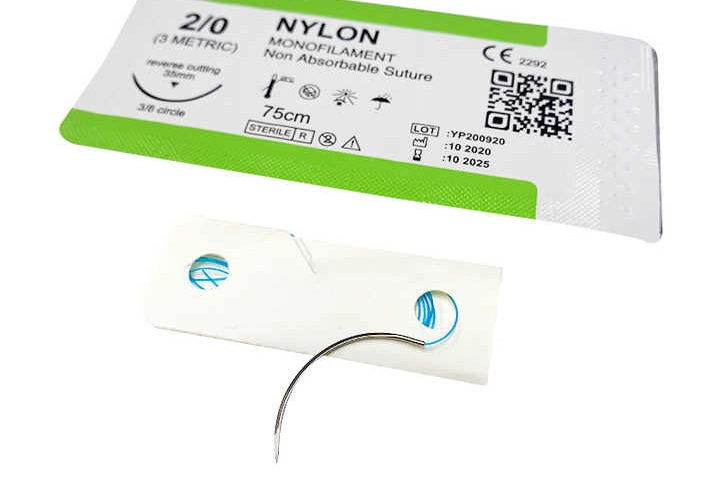Introduction to Bandages for Wounds
Surgical bandages are a type of medical disposable that falls under the category of bandages for wounds. Bandages for wounds are one of the things that may affect the healing process immensely. Apart from providing support and compression, they are also used to maintain the necessary level of moisture in the wound as well as preventing it from infection and outside contact. So, making sure that the appropriate type of bandage is used is a very important part of the recovery. Among the numerous types of wounds, the ones most commonly seen by the average person are cuts, abrasions, and incisions after surgery. Knowing what types of bandages there are and what each should be used for can make the process of recovery much quicker and efficient.
Types of Bandages for Different Wounds
Gauze Bandages
Gauze bandages are one of the most common types of bandages used for the dressing of wounds. Generally made from a thin type of material, the bandage is highly absorbent, and holes in the gauze design facilitate the ventilation of the wound. The type of bandage is suitable for minor cuts, scrapes, surgical sites, and other such needs; the Medco Company produces a number of such bandages, and while some differ in size, all differ in the mesh size. The high absorbency of the product allows the bandage to always ensure a clean environment for wound healing, thus allowing it to heal faster, and the high versatility of use makes gauze necessary in any first aid or medical kit.
Elastic Bandages
Elastic bandages are designed to offer support and compression. They can be of significant use when it comes to sprains, strains, and other type of injuries. The described product can be used since it is made from durable high-quality materials. The main advantage of the described object is that it can easily transform to adjust to the width and length to offer support for different types of injuries. This also means that minimal swelling will be observed. Another use of such bandages is to hold the dressings, and the compression ensures that injuries heal faster.
Adhesive Bandages
Band-aids, or adhesive bandages, are designed to cover small wounds or cuts that do not warrant much involvement. The bandage has a sterile pad that adheres to the skin on either side of the wound, which helps it keep dirt and bacteria out. Medco manufactures several sizes and forms of adhesive bandages, ensuring that there is one suitable for any wound. Band-aids are convenient to use and store in home first aid boxes. They are comfortable to wear under normal clothes, without hindering one’s daily activities. On the one hand, they reduce the risk of further injury as they cover the wound. On the other hand, they are designed for wound as slight as ever.
Criteria for Selecting the Appropriate Bandage
Assessing the Wound Type and Severity
The description of a perfect bandage presupposes the assessment of the wound type and its severity. For instance, smaller cuts or abrasions may only require a simple adhesive bandage or gauze. Meanwhile, a deeper laceration or a post-surgical wound would need a heavier and more absorbent material. Therefore, knowing the specifics of different wounds is vital when choosing, as the right bandage would facilitate the healing process and reduce the risk of injury.
Consideration of Material and Comfort
In the process of choosing bandages for wounds, it is crucial to pay attention to the materials, as they can affect the comfort. High-quality materials are usually safe for the skin and ensure no irritation. It is advisable to choose products made of hypoallergenic and breathable materials to avoid allergic reactions and discomfort. Medco considers the quality of the materials used for their bandage products as essential, featuring skin-friendly options for different skin types. Notably, since some patients may need to use bandages for an extended period and others for chronic wounds, comfort is a significant concern.
Evaluating Adhesiveness and Durability
Moreover, the effectiveness of a bandage is affected by its adhesive properties and durability. As long as a bandage covers a wound, it stays securely attacked to the skin and does not cause any traumas when removed. However, active individuals or those in the working environment have to take into account whether the bandage will stay on if it is exposed to moisture or some other adverse conditions. Medco’s adhesive bandages utilize high-quality adhesives, which have excellent adherence, although do not harm the skin. Knowing all of these features, healthcare professionals and individuals can choose the bandages that will best protect the wound and be more comfortable to wear.
Best Practices in Bandage Application
Cleaning and Preparing the Wound Area
Before bandaging a wound, it is important to clean the damage area. It can prevent an infection and create favorable conditions for better healing. Therefore, the first step consists of washing one’s hands to eliminate bacteria and other dangerous microbes. After that, individuals should carefully rinse the trauma site with the soap and water, pay special attention to not to clean too aggressively to avoid infection. People may also use special antiseptic solutions to carefully process the wound.
Next, to dress the wound, some people clean it using only hydrogen peroxide or an astringent such as rubbing alcohol. Other individual may avoid using water or hydrogen peroxide and instead clean the wound only with the astringent. Once the wound is cleaned and dry, people use ultrathin pads to bandage it. The use of ultrathin pads is intended to achieve the maximum possible possible absorbency rate. The pads are put directly over the damaged tissue with the aim to minimize odour production. Some people use waterproof bandages, which are useful for minor cuts and scrapes.
Techniques for Securing Different Types of Bandages
Effective bandage application ensures the required security of the latter, persisting around the wound and guarding the injured site. It is advisable to use medical tape to secure the edges of the gauze bandage, providing a tight and snug fit. It is also preferable to start from the most distal point when wrapping the elastic one and come toward the central body, overlapping each turn. This ensures constant compression of the injured site and good support.
Adhesive bandages are designed to be applied smoothly over the wound, and the skin should not be stretched while applying the bandage, as it may cause discomfort and adhesion failure. The adhesive pad must thoroughly cover the wound to protect it against external irritants. There are several types of adhesive bandages, and their fastening techniques may differ. Consequently, understanding the variations in techniques will promote efficient wound care and patient compliance.
Medco: Your Partner in Healing

Overview of Medco’s Product Range
Medco is known for its variety of medical supplies. The company produces a number of different items, such as gauzes and elastic bandages, as well as special adhesive ones. In this way, it provides healthcare professionals and other buyers with a vast array of options related to wound care.
The Medco manufacturing company is known to focus on quality that is inherent in its attentive selection of materials. Thus, the company makes sure to choose materials that are not only effective but also pleasant for the user. What is more, the organization is known for its innovative nature that leads to the continuous improvement of the services and the products that it has to offer. Furthermore, Medco’s products are certified by CE and TUV, meaning that they are safe to use and reliable. These are some of the factors that predetermine the prominence of Medco in the world of medical production.
Highlight: Disposable Sheets and Other Essential Supplies
Disposable sheets are the products from Medco Companys supply item that are very useful when dealing with wounds. As protective barriers at the wound site, they are relied on to keep the location of the wound clean and free of contaminants. Typically, the sheets provide an appropriate balance between high absorbency an remaining open to allow circulation of air, which is necessary to hasten the process of healing.





